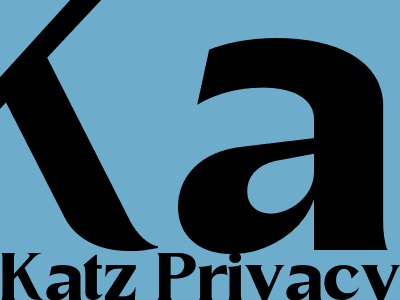
Katz Privacy Settlement
Katz Privacy Settlement: A Major Victory for Privacy Rights
What is the Katz Privacy Settlement?
The Katz Privacy Settlement is a landmark settlement between the Federal Trade Commission (FTC) and Katz Media Group, LLC, a data broker that collected and sold sensitive personal information about millions of consumers. The settlement resolves allegations that Katz violated the FTC Act by engaging in deceptive and unfair practices in connection with its collection and sale of consumer data.
Terms of the Settlement
Under the terms of the settlement, Katz is required to: * Pay $1.5 million in civil penalties; * Delete all of the personal information it collected from consumers; * Stop collecting and selling personal information without consumers' consent; and * Implement a comprehensive privacy program to protect consumers' personal information.
Why is the Katz Privacy Settlement Important?
The Katz Privacy Settlement is a major victory for privacy rights. It sends a clear message to data brokers that they cannot collect and sell sensitive personal information about consumers without their consent. The settlement also provides consumers with important new protections for their personal information.
Impact on Data Brokers
The Katz Privacy Settlement is likely to have a significant impact on the data broker industry. Data brokers collect and sell personal information about consumers from a variety of sources, including public records, social media, and commercial databases. This information can be used for a variety of purposes, including marketing, advertising, and fraud prevention. The Katz Privacy Settlement makes it clear that data brokers cannot collect and sell personal information without consumers' consent. This is a major blow to the data broker industry, as it will make it much more difficult for them to collect and sell personal information.
Protections for Consumers
The Katz Privacy Settlement also provides consumers with important new protections for their personal information. The settlement requires Katz to delete all of the personal information it collected from consumers. This means that consumers can be assured that their personal information is no longer being used by Katz or sold to other companies. The settlement also requires Katz to implement a comprehensive privacy program to protect consumers' personal information. This program must include measures to: * Secure consumers' personal information; * Limit access to consumers' personal information; and * Provide consumers with notice and choice about how their personal information is used. These protections are important for consumers, as they help to ensure that their personal information is used only for the purposes that they have authorized.
Conclusion
The Katz Privacy Settlement is a major victory for privacy rights. It sends a clear message to data brokers that they cannot collect and sell sensitive personal information about consumers without their consent. The settlement also provides consumers with important new protections for their personal information.

Comments